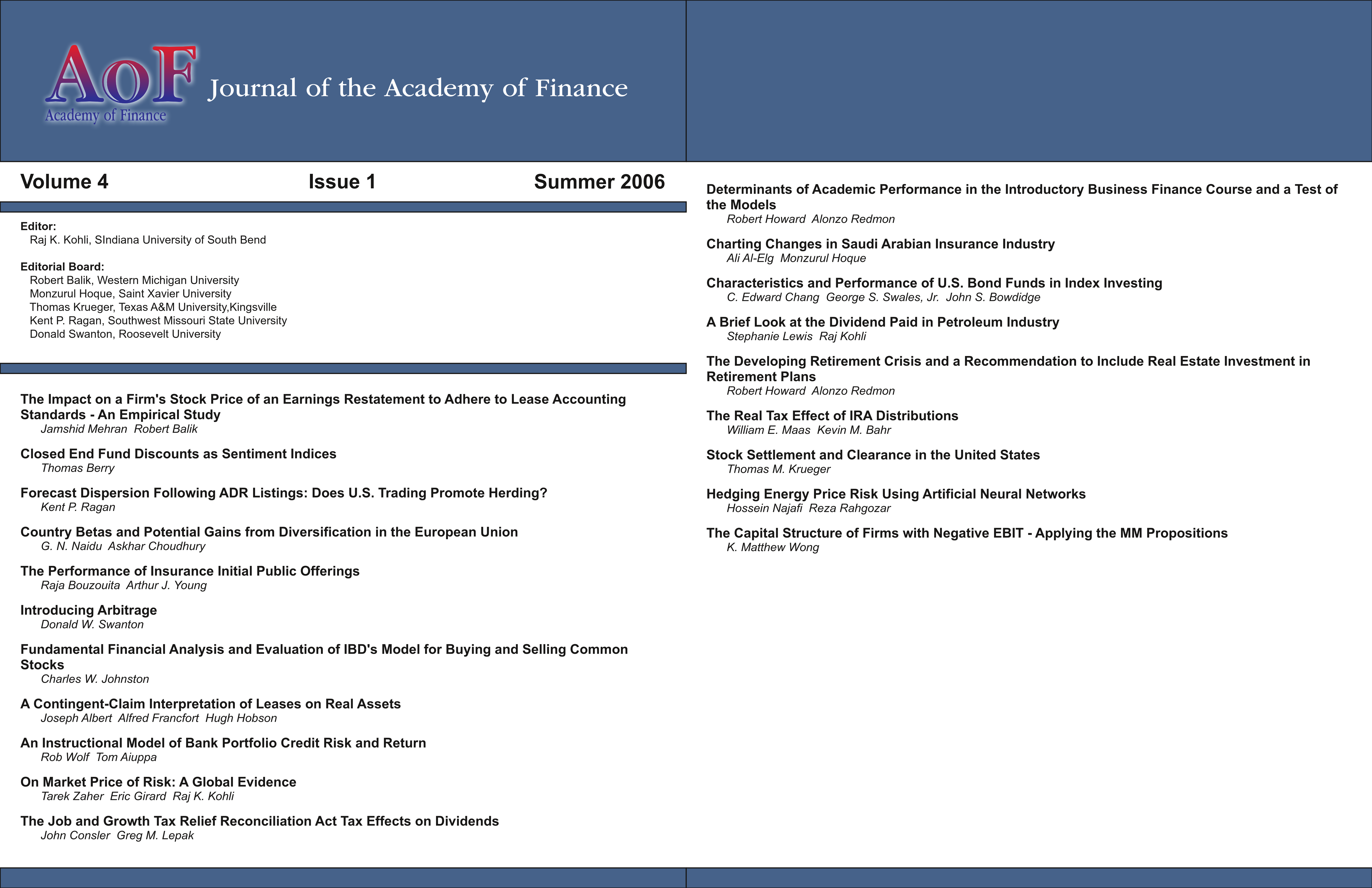The Job and Growth Tax Relief Reconciliation Act Tax Effects on Dividends
DOI:
https://doi.org/10.58886/jfi.v4i1.2469Abstract
This abstract was created post-production by the JFI Editorial Board.
This study provides clear evidence that the Job and Growth Relief Reconciliation Act of 2003 had a significant positive effect on dividends per share for the 46 large companies in the sample. There is strong statistical evidence of a positive level shift in dividends per share in the population as a result of the new tax law. The shift occurs in the third quarter of2003. The evidence is provided by a developed model which includes a linear time function to represent the uptrend in dividends and a term for level change to measure the impact of the new tax law. The model is refined using a diagonal covariance matrix for random effects and moving average correlation structure for within-firm errors. An alternate way to look at the same problem is another model constructed to measure the slope change associated with the change in tax law. The population average change in slope is not considered random. Strong statistical evidence shows that the new tax law has increased the population slope in dividend payments per share. Both models developed indicate strong likelihood that the event of a tax change on dividends in 2003 resulted in a significant increase in dividends per share. The tax effect was clearly measurable.





